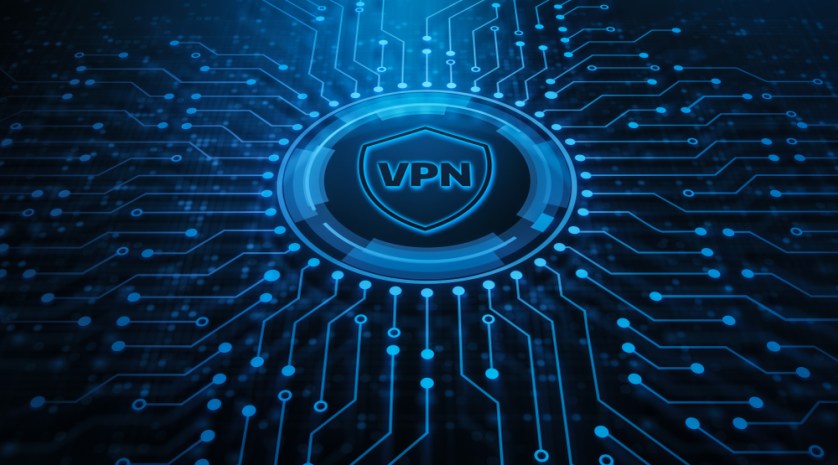The True Cost of Hiring IT
Peace of Mind Unlike a hired employee, whose hours are contained to the business day, an MSP can offer around-the-clock support. If your server goes...

Like anyone who’s recently surfed the internet, you’ve probably noticed that advertising for VPN services has gotten quite persistent. At first blush, they appear to promise you a browsing experience of security and access on a silver platter.
In keeping with our Cyber Security Month series, we’ll question and critique this vaunted miracle of modern web browsing. We observe that as business continuously transitions to remote and virtual work environments, web security becomes ever more vital. So with that front and center, we ring the doorbell and ask: is VPN security a trick or treat?
Prior to delving into the pros of using VPNs, this calls for a little explanation as to what they truly are. VPN is a techie acronym for Virtual Private Network. VPNs effectively bore a tunnel around your internet browsing by granting users login to a server. The aforementioned server (usually a local one) allows you access and guides your internet traffic. All traffic and data in and out of the server undergoes encryption while your ISP is cloaked as though the server is doing all that browsing — not you.
You can benefit from such protection as a browser. Supposing a “black hat” (a tech term referring to hackers) spies on your connected browsing, the only tidbit they could see is you tapping into a sole server, all without disclosing your stopovers on any particular pages. Can you deepen your stealth mode from there? Yes! VPN Security lets you feign as though you’re connecting from an alternate location by slipping on another IP address entirely! Moving undetectably, you can watch Netflix and peruse choices inaccessible within your own country! Furthermore, you can skirt national censorship from heavy-handed state regulators, such as the People’s Republic of China.
This typically makes for a low-cost service, and mainly when you subscribe to long-term plans. In fact, various options exist providing basic services at zero cost while merely billing for premium features. Wow! Shut up and take my money! And yet…doesn’t it sound too good to be true?
Who doesn’t want digital security? Yet as is the case with anti-virus programs, a single software won’t ensure your safety. Users seldom take stock of the inherent limits of VPN technology, placing far too much trust in it — especially versions they can get without cost.
Right out of the gate, VPNs cannot and will not provide you 100% web security, no matter whatever glittering promises they brag. For instance, we’ve already established that while anyone casing your network may be blind to your activities, websites you frequent can see you just fine! Many sites might not need your IP address to spy on you or affect you, as they tag your PC with cookies. Moreover, users like yourself don’t know — and perhaps can’t know — the kinds of security rigors on the sites you visit. Truth be told, VPNs can lull you into reckless feelings of security and woo away your vigilance. And if you enter a nefarious web page masquerading as a legitimate store and share your credit card number, whatever VPN you’re using can’t save you. Even if a legitimate website earns your trust, your VPN is useless if that site gets hacked.
For all their touted advantages, a major drawback is that VPNs expand the size of a hacker’s target. Throughout recent years, hackers have shifted their focus and time into ransacking more prominent targets to boost the payout. Why make off with the golden eggs when you can bag the goose that lays them, as it were? VPN browsing services lure hackers with a plump target, as aiming cyberattacks higher against the actual servers offers collective browsing data from a bevy of users, not just little ol’ you. Back in 2019, this nightmare scenario went down with a successful cyberattack on NordVPN servers, exposing all web traffic over the span of months! Pro tip: don’t think you’re immune if the same attacks can pummel one of the heaviest hitters in the business!
Even though VPNs are imperfect, there’s some merit to the cloaked and encrypted browsing they’re built on, which renders your data all the more challenging to compromise. However, room for improvement still remains.
Among ways to improve, one winning strategy is to establish a virtual office. Virtual offices serve up a full virtual desktop on the spot to anyone logging in with the appropriate credentials, running the gamut from data storage to Microsoft Office and other productivity software. And there’s some solid rationale that virtual offices present a far safer option. First off, rather than hopping from site to site, you specifically log into a singular, secure system. Moreover, the virtual office is dedicated, letting you log in with the serene assurance that comes with knowing who manages your data and connection. Finally, real human beings manage virtual offices instead of just passing the buck to software, permitting live and active threat control.
Although VPNs can secure your web browsing, treating it like a silver bullet is like playing with fewer matches to prevent forest fires. If your company is warming to the trend of remote work and virtual collaboration, seriously look into a virtual office. And don’t just unload the administration and setup onto just any service provider. Discover just how seamlessly and securely you can connect your employees without putting all your eggs into the sole basket of VPN security by calling Cortavo today. You’ll be glad you did.

Peace of Mind Unlike a hired employee, whose hours are contained to the business day, an MSP can offer around-the-clock support. If your server goes...

After you’ve done your research on cloud technology and decide you are ready to make the cloud migration flight. Your next question ought to be,...

Are there things you’re doing or not doing to land on a hacker watchlist? Is your company a fat target on the radar of cybercriminals? We cover 3...